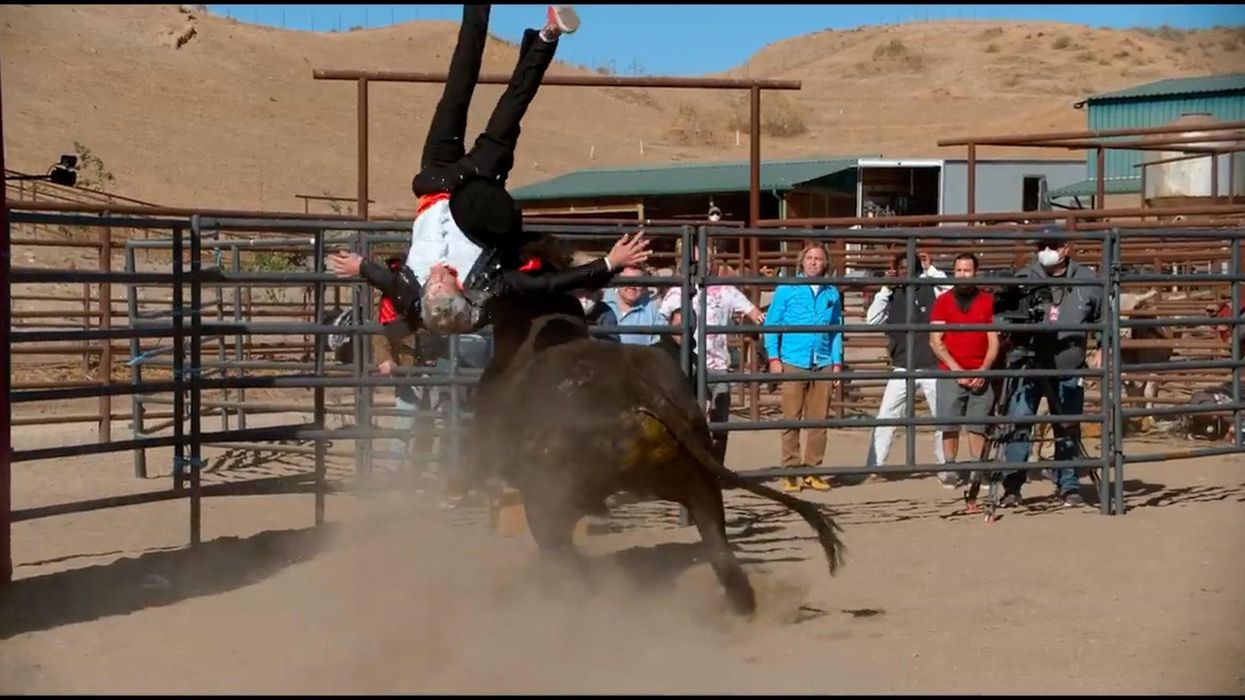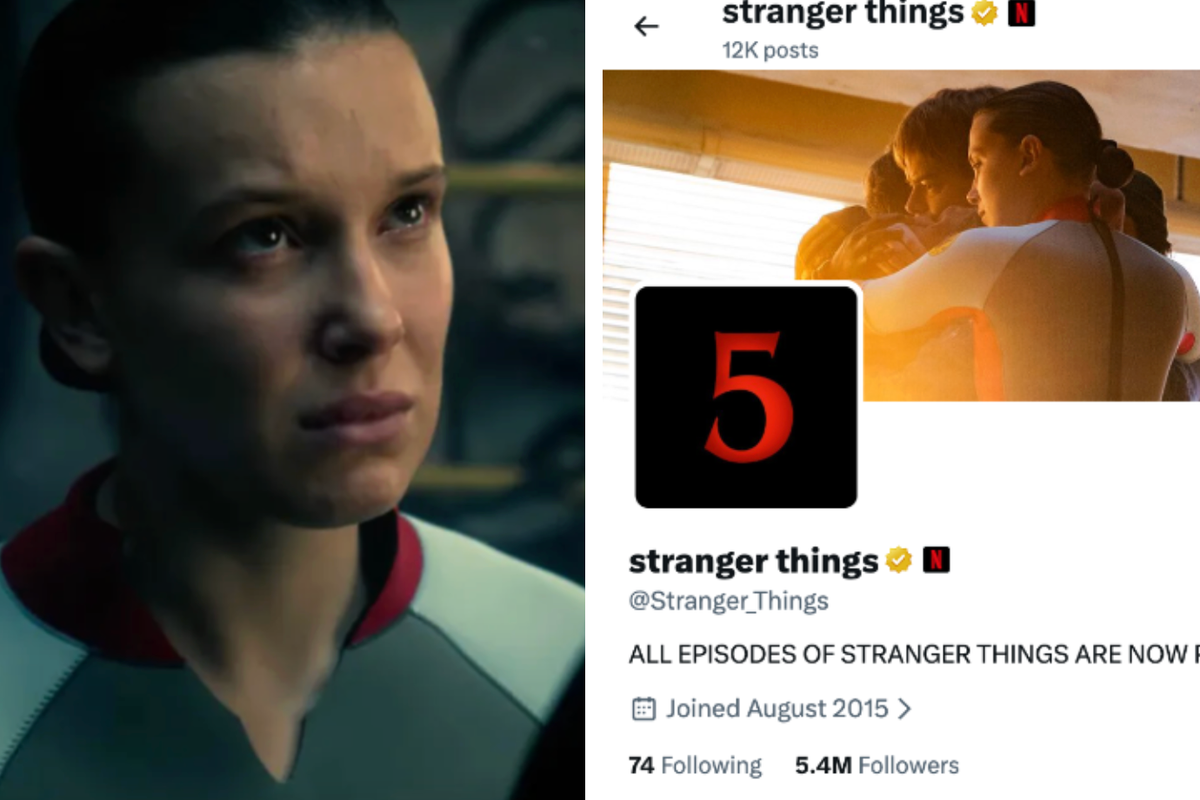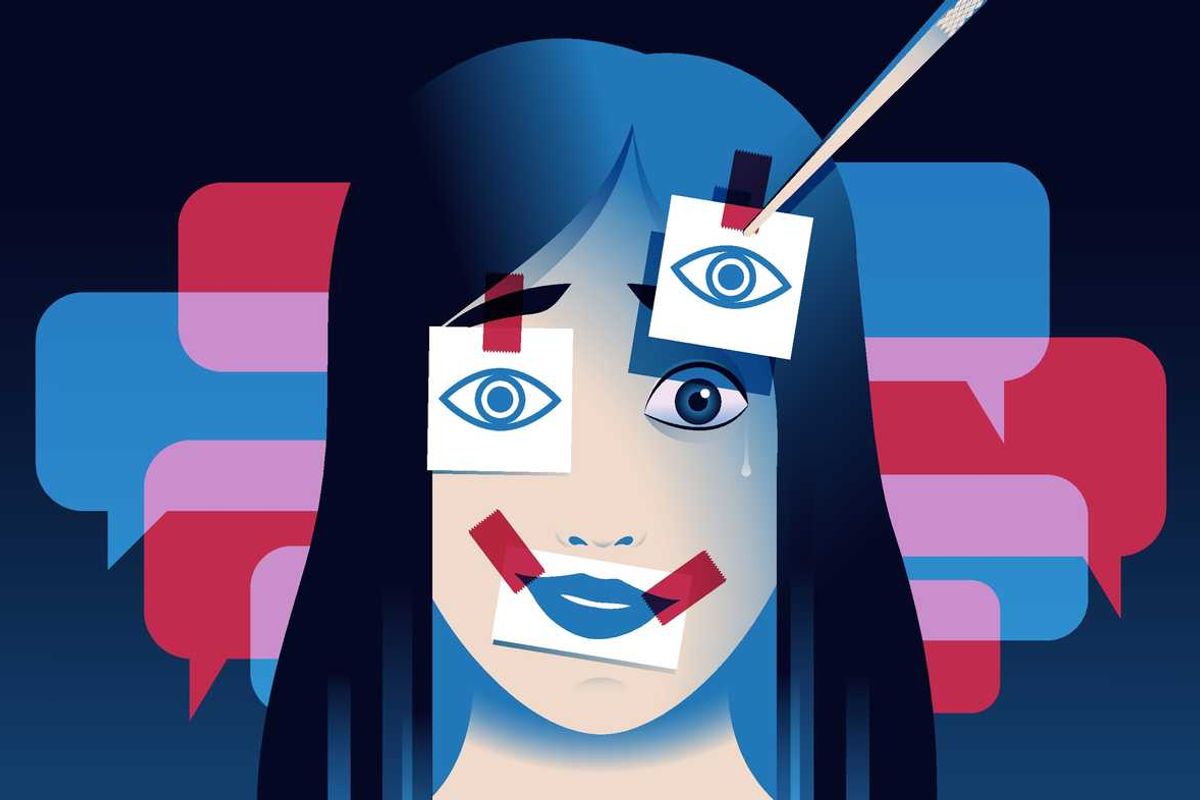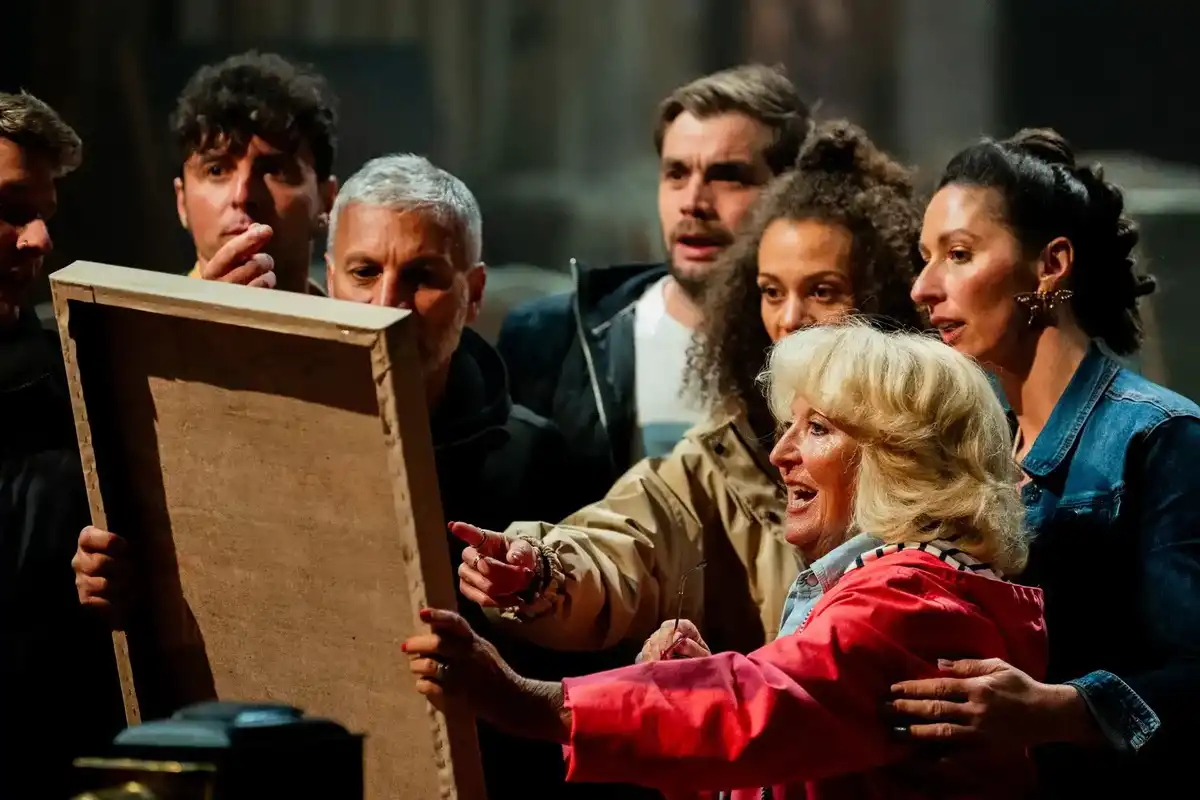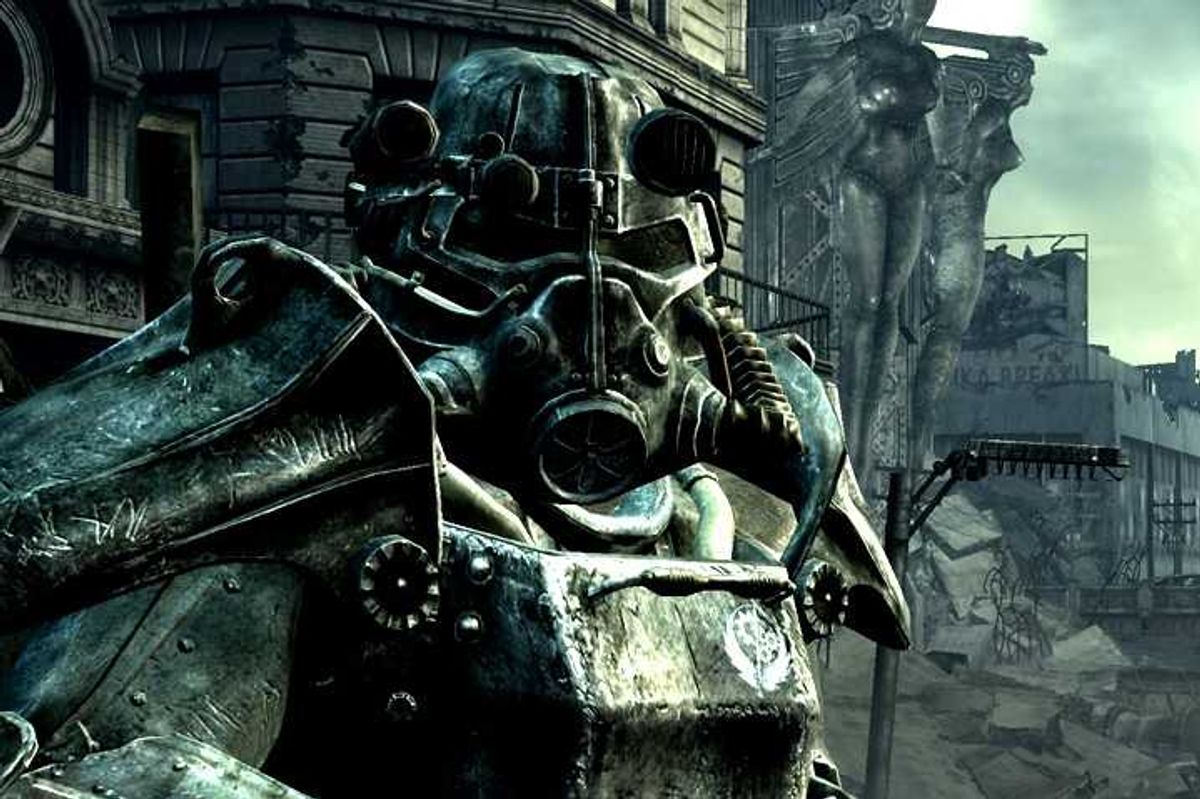If someone had a meeting with a major television studio executive in 2020 and proposed an idea for a show which consisted of nothing but them and their friends putting their lives at risk and pulling pranks on each other and the public – with a heavy focus on excrement – their pitch probably wouldn't last five minutes.
However, more than 20 years later a fourth Jackass movie; Jackass Forever is being released in cinemas to rave reviews from critics thus proving that it is still funny to see a man be willing struck in the genitals and that the franchise's influence is more profound and important than ever.
Tapping into the zeitgeist
In 2000, the sudden prevalence of a unique type of aesthetic and subculture quickly became a recognisable scene of choice for young people.
Nu-metal, a genre that combined rap and heavy metal, was hugely successful with bands like Limp Bizkit and Linkin Park producing songs that topped music charts around the world (a scene that is experiencing something of a revival, as evidenced by people's new found obsession with AJ Soprano's nu-metal apparel).
Meanwhile, extreme sports such as skateboarding and BMX were more popular than ever, even spawning hugely successful video games like Tony Hawk's Pro Skater.
Very, very baggy jeans, wallet chains, skater trainers, and spiky hair were must-haves among (mostly) teenagers who shared these interests, and the look would soon become commonplace in school playgrounds and city centres.
Neither the music nor the pastimes of the period were ever considered to be "cool" or the highest brow, but it created an appealing scene for an audience of teens who weren't that interested in football and would much rather listen to Slipknot or Linkin Park than Radiohead or Oasis.
But perhaps due to its niche and non-mainstream nature, there was little in terms of representation for this type of subculture beyond Kerrang! magazine and the Extreme Sports Channel. Until Jackass.
Somehow, a show about a bunch of misfits doing some of the most depraved things ever seen on television, set to some of the aforementioned music (but mostly 80s punk) and featuring a lot of skateboarding, managed to capture the zeitgeist and forge a way forward for a type of entertainment which is now just as popular as it ever was.
Bringing the vision to life
Jackass was created by future Hollywood star Johnny Knoxville, director Jeff Tremaine and Spike Jonze, the director of movies like Being John Malkovich and Her as well as music videos for major artists like Bjork, Puff Daddy and the Beastie Boys. They were joined by a revolving door cast of stunt workers (Ehren McGhehey), comedy pranksters (Steve-O, Dave England, Chris Pontius) and skateboarders (Bam Margera, Jason 'Wee Man' Acuna).
Much of the cast was recruited thanks to their association with Big Brother, a skateboard magazine run by Tremaine. Many had already found a small amount of success by releasing their own videos which combined pranks, stunts and skateboarding. Margera's CKY videos, of which there were four, managed to become a huge success in their own right and were essentially a precursor to what Jackass would become, before the backing of MTV.
These videos would often consist of not much more than stunts like jumping off small buildings and being hurled from shopping trolleys, disgusting pranks involving bodily deposits and absurdist comedy sketches that were less Monty Python and more David Firth (if you attended a UK university in the late 2000s then I'd hope you'd understand that reference).
Golf course airhorn pic.twitter.com/CIx4Oe86vQ— Jackass clips (@Jackass clips) 1643185064
It's not that these videos were particularly good but they were very easy to watch, very, very silly, and the sort of thing that most parents would have shuddered at the thought of their innocent children being exposed to, making them all the more appealing.
Contained within their own sphere, these videos are little more than juvenile fun, but with the exposure of a major TV network, Jackass exploded into the mainstream causing equal delight and horror. For the aforementioned nu-metal and skateboarding fans, Jackass became must-see television and was posting record viewing figures for MTV at the time.
How controversy can stunt success
Soon enough, copycat videos of youngsters creating similar stunts (some sadly resulting in deaths) soon started appearing on pre-social media internet. This writer in particular is guilty of trying a few stunts which in hindsight, he isn't proud of. This was all despite each episode coming with a stern warning to 'not try this at home' – but when are kids ever going to listen?
That was part of the charm of Jackass. Although the cast members had obvious talents, it often felt just like friends hanging out and making each other laugh – at the expense of their potential safety.
As Hannah Woodhead points out in The Guardian, Jackass had an "unexpected wholesomeness" about it and displayed male friendship on-screen in a way that wasn't common at the time. There was nothing expensive about the show and most of it looked like it was made on a shoestring budget, which is what made it seem relatable, although also may have prompted viewers to try and replicate it.
Concerned adults and censors weren't so enthralled and the controversy it created forced MTV to move it to a later time slot, garnering a significantly smaller audience. After just three seasons and disputes over pay and the content the show, it was cancelled in 2002 and has never been revived for television since.
Jackass has since found a more fruitful home for itself in movies, with the first of five being released in 2002. Critics were still divided fans but teenage audiences lapped it and all five became box office successes. The more narrative drive, Bad Grandpa, was even nominated for an Oscar for Best Makeup and Hairstyling in 2014.
The appeal of male humiliation
Although it's now a firm part of pop culture history, its easy to downplay just how revolutionary and daring a show like Jackass was.
While many of the jokes and pranks now feel very dated and wouldn't see the light of day in 2020 (The Terror Taxi where Ehren McGhehey dressed up a Middle Eastern 'terrorist' and takes a taxi ride only to be kidnapped by another set of 'terrorists' is an example of seriously problematic content by today's standards).
Today, it seems inconceivable for a networks to broadcast a man being trapped inside a port-a-loo while it is turned upside down again or creating an omelete out of his own vomit. Its hard to envision something like Jackass existing alongside something as unoffensive as The Great British Bake Off in 2020. This is partly what makes its existence and mainstream broadcast just 20 years ago all the more fascinating.
Can\u2019t roller skate in a buffalo herd. \n\n#Jackass #jackassforeverpic.twitter.com/XrvhR1KWq4— Jackass clips (@Jackass clips) 1642685315
The appeal of Jackass feels intrinsically linked to our desire to see others embarrass themselves – a type of schadenfraude still persistently exploited across the media today.
Look no further than the glee that lights up Twitter when politicians on either end of the political spectrum slip-up and make a fool of themselves.
The Jackass crew were a lot more likeable than some of the current crop of world leaders but you still can't help but chuckle at a man subjecting himself to a 'bungee wedgie.' Steve-O once likened Jackass to 'rubbernecking' and the idea that we all enjoy seeing men – not women - fail and fall over.
He told the AV Club:
"Well, there’s the rubbernecking syndrome where people are compelled to slow down and look at carnage. I think that’s actually a big part of it. The whole slowing down to look at an accident is something inherently human.
I think it’s really compelling to watch men get hurt and fall. Not women. The reason for that, I think, is all about hormones. Women are estrogen-driven, and can be sort of caregivers. They tend to nurture, so we don’t want to see women get hurt.
Men are tough providers. They want to be macho. Just to see a man fail when he’s sort of geared to be macho, that’s okay. I think that’s why we love to see men fall down."
An underestimated legacy
The vulgarity and ridiculousness of what is happening on screen likely distracted from the overall uniqueness of what Jackass is.
Apart from it running on a relatively small budget, it's easy to forget that these were essentially home videos, a genre hugely popular at the time, as evidence by the success of shows like You've Been Framed.
But there was an art to what the Jackass cast members were trying to do. Apart from making fools of themselves and making each other laugh, these short videos helped the cast create characters that truly resonated with their core audience and made genuine stars out of the likes of Knoxville, Margera and Steve-O.
In many ways, this is what YouTube would become in the 2010s.
Away from the video gamers and makeup artists you have huge YouTube influencers like KSI and Logan Paul who made a name for themselves by pulling pranks on the public and their friends and challenging each other to do very questionable things.
It's hard to imagine the cast of Jackass would ever do something as crass as laughing at a suicide victim like Logan Paul did in 2018, but there is no denying that sharing that one controversial home video helped propel his fame tenfold.
Would he and KSI have been able to have two boxing matches that earned them millions without that video? Probably not, but the fact that they both did so with barely any boxing training whatsoever is highly reminiscent of Jackass moments like Knoxville's attempts to fight professional boxer Eric 'Butterbean' Esch in a department store.
Department store boxing pic.twitter.com/lSmaYYw9zr— Jackass clips (@Jackass clips) 1643579160
Many of the Jackass cast have since dealt with mental health issues, addiction and in the sad case of Ryan Dunn, death. But the legacy of Jackass lives on.
Although the clothes and the music have changed, you can still see the fingerprints for what much of Jackass did all over social media. Whether it's people dropping large objects from buildings, pulling pranks on the public or even jumping off of things for no discernable reason, these are all things that we can easily access on YouTube, Instagram, or TikTok.
Some of these are tamer or even more unpleasant that some of the things you would see on Jackass but they embody the same DIY ethics that the show was born from.
While its legacy might not be as profound as other shows from the same era like The Wire and The Sopranos, there is little doubt that Jackass created a new form of entertainment that we consume on an almost daily basis without even realising it.
Just don't expect to see a show where a man pretends to be kidnapped and runs around the streets of Los Angeles in nothing but a thong after escaping from the boot of a car on TV ever again.
Then again there is always YouTube...
